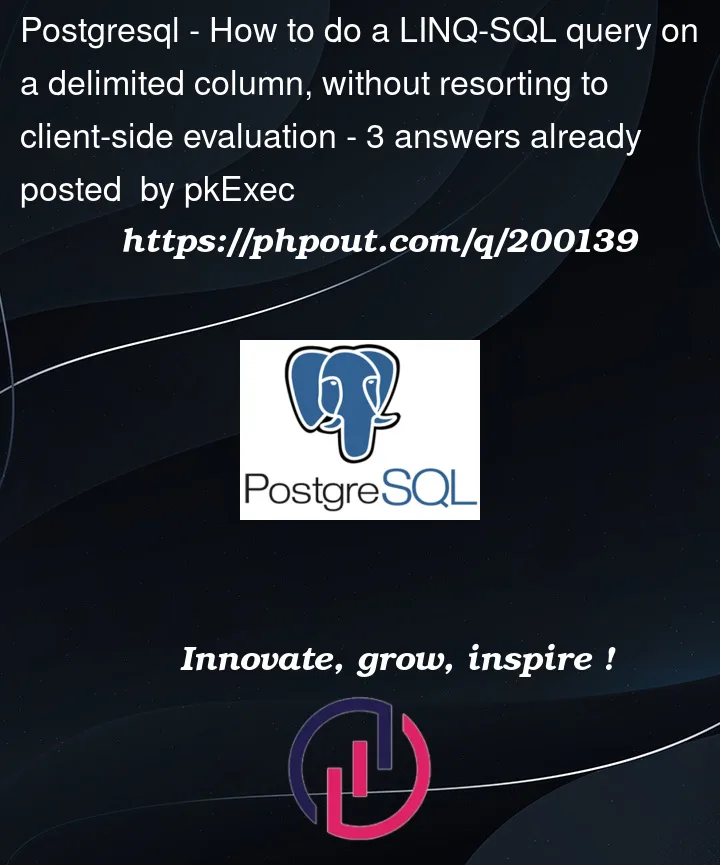I am trying to query a view, which has an "Operator" column. Sample data:
- Ed
- Edward
- Ed;Adam
- [null]
- Bob; Edward
- Bob; Ed; Tom
Given a user input of a List<string>, let’s say "Ed","Peter", "Mark", I want to return rows that fully contain one of the user inputs, in my example rows #1, #3, and #6.
An equivalent SQL query that returns what I want would be:
SELECT *
FROM myview
WHERE "Operator" LIKE 'Ed' OR "Operator" LIKE 'Ed;%' OR "Operator" LIKE '%;Ed' OR "Operator" LIKE '%;Ed;%'
--repeated for "Peter" and "Mark" etc
I’ve tried #1:
var query = IQueryable<Myview> farms;
var List<string> operators = new List<string> { "Ed","Peter", "Mark" };
var filteredFarms = query.Where(t => t.Operator != null && operators.Any(op => t.Operator.Split(';').Any(o => o == op)));
Which unsurprisingly gives "The LINQ expression ... could not be translated. Either rewrite the query in a form that can be translated, or switch to client evaluation explicitly by inserting a call to 'AsEnumerable', 'AsAsyncEnumerable', 'ToList', or 'ToListAsync'."
I also tried #2:
var filteredFarms = query.Where(t => t.Operator != null && operators.Any(op => EF.Functions.Like(t.Operator, ""+op+";%")));
As a test to see if I could build the "like" query manually, but that failed with the same error.
Is there any way I can do this using LINQ without client-side evaluation? You may assume that ";" is only used as a separator.




3
Answers
I ended up moving part of the logic to an SQL function:
Then I declared that function in my model:
And in the context:
So now I can do this:
And it works. Probably it would be more efficient to use a TVF instead of scalar function, but it's sufficient for now.
Try :
There’s no such thing as delimited columns in relational databases. These are just string values. They can’t be queried or indexed. Trying to find a string in the middle of such a column will force the database to scan the entire table.
There’s no need for such values in PostgreSQL. PostgreSQL has array types that can be searched using array operators:
NpgSQL supports array mapping and querying. This means you can easily write a LINQ query that checks for an element in the array:
Array fields can be indexed with a GIN index, providing fast querying. Only a few of the array operators take advantage of indexing though, which is why I used
@>instead ofANY.In other databases you could use their JSON or XML support to store, query and sometimes index values instead of using string manipulations